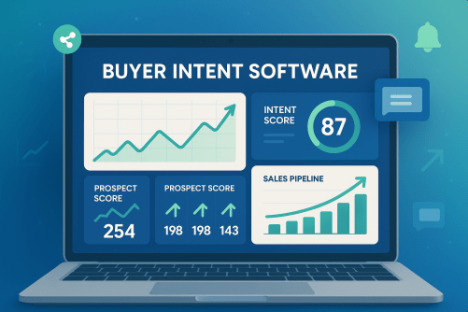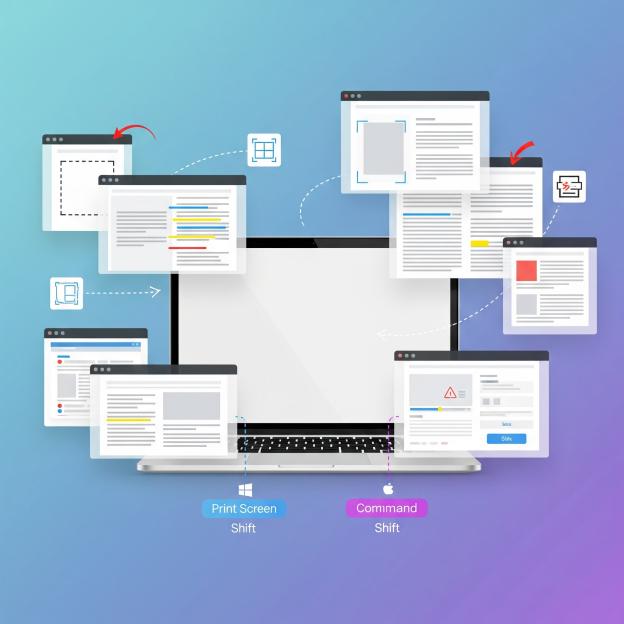Look, we get it â you’re not trying to break the bank just to keep your digital life private.
Whether you’re dodging those sketchy public WiFi networks at your local coffee shop or just want to stream content without Big Brother watching, finding a legit free VPN that actually works is like finding a parking spot during finals week â nearly impossible but totally worth it when you score one.
The good news? We’ve done the heavy lifting and found some actually decent free VPNs that won’t sell your data faster than you can say “privacy breach.”;;
Let’s dive into the real deal on free VPN services that’ll keep you covered without emptying your wallet
Table of Contents
- What is a VPN and Why You Need One
- Top 10 Best Free VPNs for 2025
- Best Free VPNs for Desktop
- Best Free VPNs for Mobile
- How to Choose the Right Free VPN
- Free vs Paid VPN Services
- VPN Security and Privacy Features
- Setting Up Your Free VPN
- Common VPN Issues and Solutions
- Frequently Asked Questions
What is a VPN and Why You Need One
A Virtual Private Network (VPN) is essentially a secure tunnel between your device and the internet. Think of it as your personal bodyguard for online activities â it encrypts your internet connection, masks your IP address, and keeps your browsing habits private from prying eyes.
Why Americans Need VPNs in 2025
In today’s digital landscape, online privacy has become more crucial than ever. Here’s why you need a reliable VPN service:
Privacy Protection: Internet Service Providers (ISPs) can track and sell your browsing data. A VPN prevents this by encrypting your connection.
Public WiFi Security: Free WiFi networks are goldmines for hackers. VPNs protect you from man-in-the-middle attacks and data theft.
Geo-restriction Bypass: Access content that’s blocked in your region, from streaming services to websites.
Data Security: Protect sensitive information like passwords, credit card details, and personal files from cybercriminals.
Anonymous Browsing: Keep your online activities private from government surveillance and corporate tracking.
Top 10 Best Free VPNs for 2025
After extensive testing and analysis, here are the best free VPN services that deliver on their promises:
1. ProtonVPN Free
Data Limit: Unlimited
Server Locations: 3 countries (US, Netherlands, Japan)
Best For: Long-term free use
ProtonVPN stands out as the only unlimited free VPN that doesn’t cap your data usage. Created by the team behind ProtonMail, this service prioritizes privacy and security above all else.
Pros:
- No data limits or speed throttling
- Strong encryption (AES-256)
- No-logs policy
- Works on multiple devices
- Based in privacy-friendly Switzerland
Cons:
- Limited to 3 server locations
- Only one connection at a time
- No P2P support on free plan
2. Windscribe VPN
Data Limit: 10GB/month (15GB with email confirmation)
Server Locations: 10+ countries
Best For: Streaming and general browsing
Windscribe offers one of the most generous free VPN data allowances with excellent streaming capabilities and robust privacy features.
Pros:
- 10-15GB monthly data allowance
- Ad and malware blocking
- Strong encryption protocols
- Netflix unblocking capability
- User-friendly interface
Cons:
- Data cap resets monthly
- Limited customer support for free users
- Some servers restricted to paid plans
3. Hide.me
Data Limit: 10GB/month
Server Locations: 8 countries
Best For: Privacy-conscious users
Hide.me provides a solid free VPN solution with strong privacy policies and no intrusive ads or malware risks.
Pros:
- True no-logs policy
- Good connection speeds
- Multiple protocol options
- No ads or malware
- Supports torrenting
Cons:
- 10GB monthly limit
- Limited simultaneous connections
- Fewer server locations
4. TunnelBear VPN
Data Limit: 500MB/month (2GB with social media promotion)
Server Locations: 20+ countries
Best For: Casual browsing
TunnelBear offers a user-friendly VPN experience with a playful interface and reliable security features.
Pros:
- Easy-to-use interface
- Strong encryption
- No-logs policy
- Works in China
- Regular security audits
Cons:
- Very limited data allowance
- Basic features only
- Slow speeds during peak times
5. Hotspot Shield Free
Data Limit: 500MB/day
Server Locations: US only (free plan)
Best For: Quick browsing sessions
Hotspot Shield provides fast connection speeds and daily data refreshes, making it suitable for light VPN usage.
Pros:
- Fast connection speeds
- Daily data reset
- Military-grade encryption
- Malware protection
- Simple setup process
Cons:
- Limited to US servers only
- Contains advertisements
- Aggressive upselling
- Logs some user data
6. Speedify VPN
Data Limit: 2GB/month
Server Locations: Multiple global locations
Best For: Mobile users
Speedify specializes in mobile VPN optimization with unique channel bonding technology that combines WiFi and cellular connections.
Pros:
- Channel bonding technology
- Good for mobile devices
- Reliable connections
- Stream-friendly
- Auto-failover protection
Cons:
- 2GB monthly limit
- Requires account creation
- Limited free server access
- Premium features locked
7. Opera VPN (Built-in Browser VPN)
Data Limit: Unlimited
Server Locations: Multiple regions
Best For: Browser-based activities
Opera’s built-in VPN provides unlimited browsing protection directly within the Opera browser.
Pros:
- Unlimited data usage
- No additional software needed
- Fast browsing speeds
- Ad blocker included
- Free and easy to use
Cons:
- Browser-only protection
- Limited server selection
- Not suitable for all applications
- Fewer privacy controls
8. Atlas VPN
Data Limit: 5GB/month
Server Locations: 3 locations
Best For: Security-focused users
Atlas VPN offers solid security features with a reasonable data allowance for free users.
Pros:
- 5GB monthly allowance
- Strong security features
- No-logs policy
- Data breach monitoring
- SafeSwap servers
Cons:
- Limited server locations
- Monthly data cap
- Basic customer support
- Fewer advanced features
9. Kaspersky Secure Connection
Data Limit: 200MB/day
Server Locations: Auto-selected
Best For: Quick security tasks
From the renowned cybersecurity company, Kaspersky offers a simple VPN solution with reliable protection.
Pros:
- Trusted security brand
- Simple interface
- Good connection stability
- Automatic server selection
- No-logs policy
Cons:
- Very limited daily data
- No server choice
- Basic functionality
- Russian company concerns
10. Betternet VPN
Data Limit: Unlimited with ads
Server Locations: Multiple global servers
Best For: Casual browsing with ad tolerance
Betternet provides unlimited VPN access in exchange for viewing advertisements.
Pros:
- Unlimited data usage
- Simple one-click connection
- Multiple server locations
- No registration required
- Cross-platform support
Cons:
- Frequent advertisements
- Privacy concerns
- Slower speeds
- Limited configuration options
- Questionable data practices
Best Free VPNs for Desktop

When choosing a free VPN for desktop, consider factors like ease of installation, system resource usage, and compatibility with your operating system.
Windows VPN Solutions
ProtonVPN leads the pack for Windows users with its dedicated application that offers:
- Native Windows 10/11 support
- Kill switch functionality
- Split tunneling options
- Secure Core architecture
- Easy-to-navigate interface
Windscribe also provides excellent Windows compatibility with:
- Lightweight desktop application
- Firewall protection
- Custom DNS settings
- Protocol selection options
- Advanced privacy features
Mac VPN Applications
Mac users should prioritize VPN services that offer:
- Native macOS applications
- System-level integration
- Menu bar controls
- Keychain integration
- Minimal system impact
Top picks for Mac:
- ProtonVPN: Full-featured macOS app with excellent performance
- Hide.me: Clean interface with robust security features
- TunnelBear: User-friendly design optimized for Mac users
Linux VPN Support
Linux users often need command-line VPN solutions or GUI applications that work with various distributions:
ProtonVPN offers:
- Official Linux application
- Command-line interface
- OpenVPN configuration files
- Ubuntu/Debian packages
- Community support
Best Free VPNs for Mobile
Mobile VPN usage has skyrocketed, making mobile VPN optimization crucial for modern users.
iOS VPN Apps
iPhone and iPad users need iOS VPN applications that offer:
- App Store availability
- iOS-specific optimizations
- Background connectivity
- Siri integration capabilities
- Low battery consumption
Recommended iOS VPNs:
ProtonVPN iOS App:
- Native iOS application
- Widget support
- Shortcuts integration
- Always-on VPN capability
- Dark mode support
Windscribe iOS:
- Comprehensive iOS features
- R.O.B.E.R.T. ad blocking
- Custom DNS options
- Connection automation
- Battery optimization
Android VPN Applications
Android users benefit from more VPN customization options and flexibility:
ProtonVPN Android:
- Material Design interface
- Split tunneling support
- Multiple protocol options
- Auto-connect features
- Tile shortcuts
Speedify Android:
- Channel bonding technology
- Seamless network switching
- Background optimization
- Data usage monitoring
- Connection redundancy
How to Choose the Right Free VPN
Selecting the perfect free VPN service requires careful consideration of multiple factors:
Data Allowance Considerations
Unlimited Options: ProtonVPN and Opera VPN offer unlimited data usage, ideal for heavy internet users.
Monthly Caps: Services like Windscribe (10-15GB) and Hide.me (10GB) provide substantial monthly allowances.
Daily Limits: Hotspot Shield’s 500MB daily allowance works well for light, consistent usage.
Server Location Requirements
Consider your geo-unblocking needs:
- US-based servers: Essential for accessing American content
- European servers: Needed for GDPR-compliant browsing
- Asian servers: Important for gaming and regional content
- Global coverage: Better for international travelers
Security Protocol Evaluation
Look for VPNs supporting:
- OpenVPN: Industry-standard protocol with excellent security
- WireGuard: Modern, fast protocol with strong encryption
- IKEv2: Great for mobile devices with auto-reconnect features
- L2TP/IPSec: Reliable but slower protocol option
Privacy Policy Analysis
Examine each provider’s privacy policy for:
- No-logs policies: Verify what data isn’t collected
- Data retention periods: Understand storage timelines
- Third-party sharing: Check data selling practices
- Jurisdiction concerns: Consider legal requirements
Free vs Paid VPN Services
Understanding the differences between free and premium VPN services helps set realistic expectations:
Free VPN Limitations
Data Restrictions: Most free VPNs impose monthly or daily data caps that may not suit heavy users.
Speed Limitations: Free services often throttle connection speeds to encourage upgrades.
Server Access: Limited server networks reduce geo-unblocking capabilities.
Customer Support: Free users typically receive minimal or community-based support.
Feature Restrictions: Advanced features like split tunneling, kill switches, and protocol selection may be unavailable.
Paid VPN Advantages
Unlimited Usage: No data caps or speed restrictions for consistent performance.
Global Server Networks: Hundreds or thousands of servers worldwide for optimal connectivity.
Advanced Security: Enhanced encryption protocols, malware protection, and security audits.
24/7 Support: Professional customer service with live chat and email support.
Multi-device Support: Simultaneous connections across all your devices.
When to Upgrade
Consider upgrading to a paid VPN subscription when:
- You exceed free data allowances regularly
- You need access to specific geographic locations
- Streaming or gaming performance becomes crucial
- Business or sensitive data requires maximum protection
- Multiple devices need simultaneous protection
VPN Security and Privacy Features
Understanding VPN security features helps you make informed decisions about your digital privacy:
Encryption Standards
AES-256 Encryption: Military-grade encryption that would take billions of years to crack with current technology.
ChaCha20: Modern encryption cipher that’s particularly effective on mobile devices.
RSA-2048: Secure key exchange protocol for establishing connections.
Security Protocols Explained
OpenVPN:
- Open-source protocol with proven security
- Highly configurable and auditable
- Works well across all platforms
- Excellent balance of speed and security
WireGuard:
- Next-generation protocol with minimal codebase
- Faster than OpenVPN with lower battery usage
- Modern cryptography implementation
- Increasingly adopted by providers
IKEv2/IPSec:
- Excellent for mobile devices
- Quick reconnection after network changes
- Strong security with good performance
- Native support on iOS and Android
Advanced Privacy Features
Kill Switch: Automatically disconnects internet if VPN connection drops, preventing data leaks.
DNS Leak Protection: Ensures DNS queries route through VPN servers instead of ISP servers.
IPv6 Leak Protection: Prevents IPv6 traffic from bypassing VPN tunnel.
Split Tunneling: Allows specific apps or websites to bypass VPN while others remain protected.
Multi-hop Connections: Routes traffic through multiple VPN servers for enhanced anonymity.
Setting Up Your Free VPN
Getting started with a free VPN setup is typically straightforward, but following best practices ensures optimal security and performance:
Desktop Installation Process
Step 1: Choose Your VPN Service Research and select a reputable free VPN that meets your needs.
Step 2: Download Official Software Always download VPN applications from official websites or app stores to avoid malware.
Step 3: Create Account Most services require account creation for tracking usage and providing support.
Step 4: Install and Configure Follow installation wizards and configure security settings according to your preferences.
Step 5: Test Connection Verify your VPN works by checking your IP address before and after connection.
Mobile Setup Guidelines
iOS Setup:
- Download VPN app from App Store
- Grant necessary permissions (VPN profile installation)
- Configure auto-connect settings
- Test connection and verify functionality
Android Setup:
- Download from Google Play Store
- Accept VPN permission requests
- Configure protocol preferences
- Set up connection automation rules
- Verify proper functionality
Configuration Best Practices
Protocol Selection: Choose protocols based on your needs:
- OpenVPN for maximum security
- WireGuard for speed and battery life
- IKEv2 for mobile reliability
Auto-Connect Settings: Configure automatic connection when:
- Joining unsecured WiFi networks
- Starting specific applications
- System startup or wake from sleep
DNS Configuration: Use VPN provider’s DNS servers or privacy-focused alternatives like:
- Cloudflare DNS (1.1.1.1)
- Quad9 DNS (9.9.9.9)
- OpenDNS (208.67.222.222)
Common VPN Issues and Solutions
Even the best free VPNs can encounter issues. Here’s how to troubleshoot common problems:
Connection Problems
Issue: Cannot establish VPN connection
Solutions:
- Check internet connectivity without VPN
- Try different VPN servers or protocols
- Disable firewall or antivirus temporarily
- Restart network adapter or modem/router
- Contact VPN provider support
Issue: Frequent disconnections
Solutions:
- Enable auto-reconnect features
- Switch to more stable protocols (IKEv2)
- Check for software updates
- Adjust power management settings
- Use wired connection instead of WiFi
Speed and Performance Issues
Issue: Slow internet speeds with VPN
Solutions:
- Connect to nearby server locations
- Switch to faster protocols (WireGuard)
- Close bandwidth-heavy applications
- Check for ISP throttling
- Upgrade to premium service if needed
Issue: High latency or ping times
Solutions:
- Choose geographically closer servers
- Avoid over-crowded free servers
- Test different protocols
- Use gaming-optimized VPN services
- Consider wired connections
Streaming and Access Problems
Issue: Cannot access geo-blocked content
Solutions:
- Try different server locations
- Clear browser cache and cookies
- Disable location services
- Use incognito/private browsing mode
- Switch VPN providers if necessary
Issue: Websites detecting VPN usage
Solutions:
- Use dedicated IP addresses (paid feature)
- Switch to less commonly used servers
- Try different protocols or ports
- Use browser extensions instead of apps
- Consider premium VPN services
Privacy and Security Concerns
Issue: DNS or IP leaks detected
Solutions:
- Enable DNS leak protection
- Use VPN’s DNS servers
- Disable IPv6 if not supported
- Test with multiple leak detection tools
- Configure firewall rules properly
Issue: Kill switch not working
Solutions:
- Verify kill switch is enabled
- Test functionality before relying on it
- Use firewall rules as backup
- Update VPN software
- Consider alternative VPN providers
Security Tips for VPN Users
Maximize your VPN privacy protection with these essential security practices:
Best Practices
Regular Updates: Keep VPN software updated to patch security vulnerabilities.
Strong Authentication: Use unique, complex passwords and enable two-factor authentication when available.
Protocol Selection: Choose appropriate protocols based on your security needs and device capabilities.
Server Selection: Regularly rotate between different servers to avoid tracking.
Leak Testing: Periodically test for DNS, IP, and WebRTC leaks using online tools.
What to Avoid
Free VPNs with Poor Reputations: Avoid services known for logging user data or containing malware.
Simultaneous Connections: Don’t exceed connection limits as this may compromise service quality.
Illegal Activities: Remember that VPNs don’t make illegal activities legal.
Unsecured Protocols: Avoid PPTP and other deprecated protocols with known vulnerabilities.
Public WiFi Over-Reliance: Don’t assume VPNs make public WiFi completely safe for sensitive activities.
Frequently Asked Questions
Are free VPNs safe to use?
Reputable free VPNs like ProtonVPN, Windscribe, and Hide.me are generally safe when they:
- Have transparent privacy policies
- Use strong encryption protocols
- Undergo regular security audits
- Don’t log user activities
- Come from established companies
However, avoid free VPNs that:
- Lack clear privacy policies
- Show excessive advertisements
- Request unnecessary permissions
- Have poor user reviews
- Come from unknown developers
Can I use free VPNs for streaming?
Limited streaming capability is possible with some free VPNs:
Best for streaming:
- Windscribe (works with some Netflix regions)
- ProtonVPN (basic streaming support)
- Atlas VPN (limited streaming access)
Limitations:
- Data caps restrict extended viewing
- Fewer server options limit content access
- Slower speeds may cause buffering
- Streaming services actively block many VPN IPs
Do free VPNs work in China?
Most free VPNs struggle in China due to the Great Firewall’s sophisticated blocking mechanisms:
Occasionally works:
- TunnelBear (intermittent access)
- Some ProtonVPN servers
Generally blocked:
- Most mainstream free VPN services
- Popular VPN websites and apps
Better alternatives:
- Paid VPNs with obfuscation technology
- Services specifically designed for China
- VPNs with dedicated Chinese server support
Can I torrent with free VPNs?
Torrenting capabilities vary significantly among free VPN providers:
Allows P2P traffic:
- Hide.me (explicit P2P support)
- Windscribe (on specific servers)
- Some Atlas VPN servers
Restricts torrenting:
- ProtonVPN free plan
- Most other free services
- Services in certain jurisdictions
Important considerations:
- Data caps limit download capacity
- Slower speeds affect torrent performance
- Legal implications vary by country
- Always check provider’s P2P policy
How do free VPNs make money?
Free VPN business models typically include:
Advertisement Revenue:
- Display ads within applications
- Partner with advertising networks
- Collect anonymous usage data for targeting
Freemium Conversions:
- Offer limited free service to encourage upgrades
- Provide premium features for paying customers
- Use free tiers as marketing tools
Data Monetization:
- Sell anonymized browsing data (questionable providers)
- Partner with data analytics companies
- Provide market research insights
Legitimate Models:
- Cross-subsidization from paid users
- Corporate or enterprise service revenue
- Additional security product sales
Should I upgrade to a paid VPN?
Consider upgrading when:
Usage Patterns:
- You regularly exceed data allowances
- You need consistent, fast speeds
- Multiple devices require protection
- You travel frequently internationally
Security Needs:
- You handle sensitive business data
- You work remotely regularly
- You live in a restrictive internet environment
- You need advanced security features
Content Access:
- You want reliable streaming access
- You need specific geographic server locations
- You require optimized gaming connections
- You use P2P applications frequently
What’s the catch with free VPNs?
Common limitations include:
Technical Restrictions:
- Monthly or daily data caps
- Reduced connection speeds
- Limited server locations
- Fewer simultaneous connections
- Basic customer support
Privacy Concerns:
- Potential data logging (some providers)
- Advertisement tracking
- Less rigorous security audits
- Shared IP addresses
- Reduced anonymity
Performance Issues:
- Overcrowded servers
- Inconsistent connection quality
- Limited protocol options
- Reduced streaming capabilities
- Higher latency
Business Model Dependencies:
- Advertisement-supported services
- Pressure to upgrade to paid plans
- Potential service discontinuation
- Feature restrictions
- Priority given to paying customers
Conclusion
Finding the perfect free VPN service requires balancing your privacy needs, usage patterns, and tolerance for limitations. While free VPNs can’t match the comprehensive features of premium services, several providers offer legitimate, secure options for basic privacy protection.
ProtonVPN stands out as the clear winner for users seeking unlimited data usage with strong security practices. For those comfortable with data caps, Windscribe and Hide.me provide excellent value with generous monthly allowances and robust feature sets.
Remember that free VPN services work best as stepping stones to understanding your VPN needs or as backup solutions for light usage. Heavy internet users, frequent travelers, and those requiring consistent streaming access should seriously consider upgrading to paid services.
Regardless of which free VPN you choose, always prioritize providers with transparent privacy policies, strong encryption standards, and positive user reviews. Your digital privacy is worth the effort to research and select a reputable service that won’t compromise your security for profit.
Start with one of our recommended services, test it thoroughly, and upgrade when your needs outgrow the free tier limitations. With the right approach, you can maintain your online privacy without breaking the bank while building toward a more comprehensive VPN solution that grows with your digital lifestyle.
Key Takeaways:
- ProtonVPN offers the best unlimited free VPN experience
- Windscribe provides excellent value with 10-15GB monthly data
- Always verify no-logs policies and encryption standards
- Free VPNs work well for basic privacy but have limitations
- Consider upgrading when you consistently hit data caps or need advanced features
Stay safe, stay private, and remember that any VPN protection is better than none â especially on public WiFi networks and when accessing sensitive information online.







